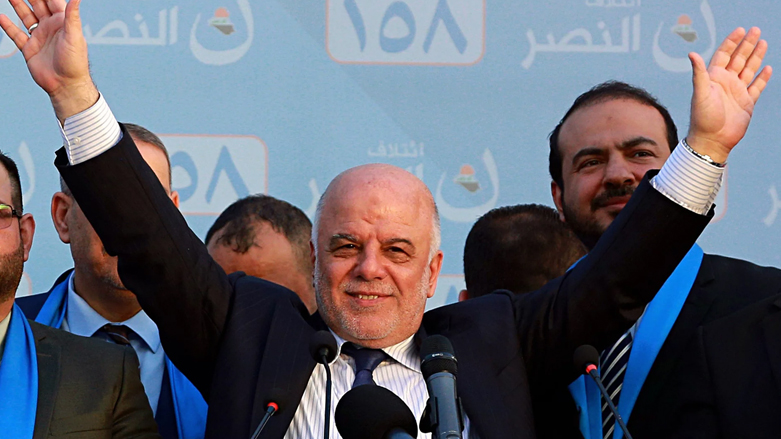Iraqi PM leads with influential Shia cleric Sadr on his heels in initial results: Commission source

ERBIL (Kurdistan 24) – Iraqi Prime Minister Haider al-Abadi’s list appears to be leading Iraq’s national election followed by influential Shia cleric Moqtada al-Sadr’s alliance, a security official and a source from the electoral commission told Reuters on Sunday.
The sources cited unofficial initial results.
In the Kurdistan Region, the ruling Kurdistan Democratic Party (KDP) believed to have secured most of the votes coming in the first row, a source from the commission told Kurdistan 24 on Sunday.
On Saturday, people across Iraq and the Kurdistan Region took part in national legislative elections, the first since the defeat of the Islamic State (IS). Polls opened at 7:00 a.m. and closed at 6:00 p.m.
Turnout stood at 44.5 percent, according to Iraq’s Independent High Electoral Commission (IHEC). It is the lowest voter turnout rate in Iraq in the past 13 years. In the 2014 elections, roughly 60 percent headed to the polls.
Unlike previous elections, a new electronic device was used in Saturday’s parliamentary elections to verify voter cards, fingerprints, and to count ballots—a system meant to streamline the electoral process and prevent fraud from taking place.
Political parties across the country, however, have asserted there were incidents of voter fraud at multiple polling stations
More than 24 million Iraqis were eligible to vote in the elections, the fourth national election since the fall of Saddam Hussein and his dictatorial regime in 2003. Three million people were eligible to vote in the Kurdistan Region.
Editing by Nadia Riva

